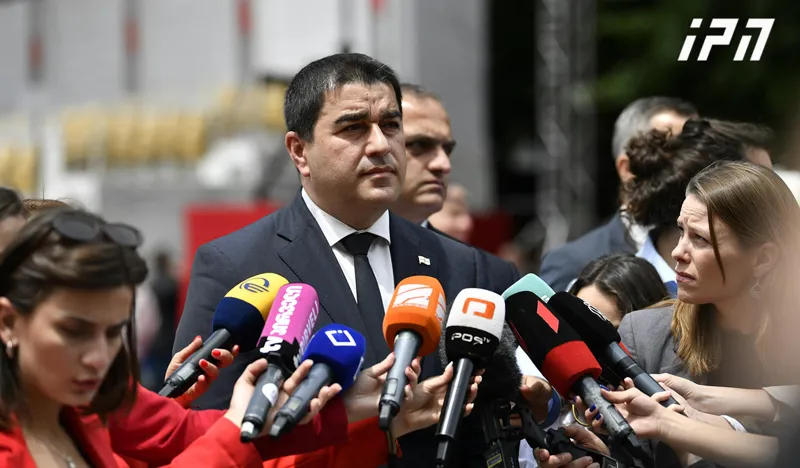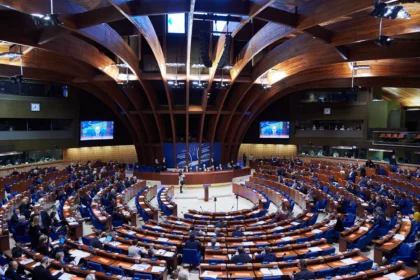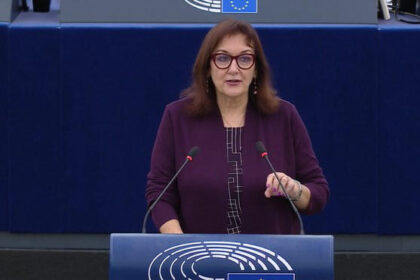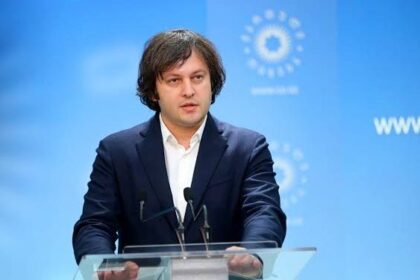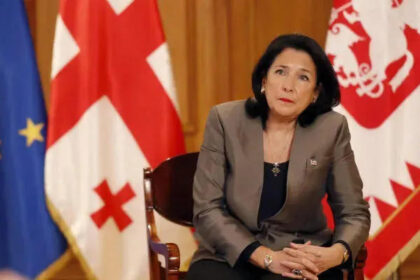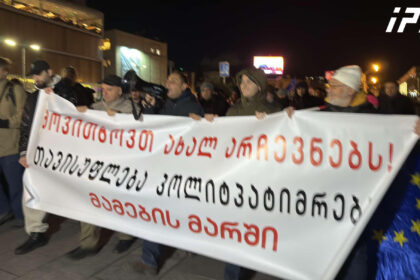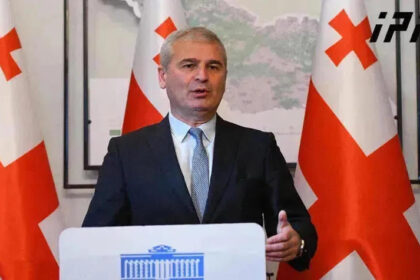**Georgian Speaker Slams Joint Statement by European Leaders**
The Speaker of the Parliament of Georgia, Shalva Papuashvili, has sharply criticized a joint statement issued by the leaders of France, Poland, and Germany on Georgia’s Independence Day. The “Weimar Triangle” – consisting of French President Emmanuel Macron, Polish Prime Minister Donald Tusk, and German Chancellor Friedrich Merz – expressed support for Georgia’s democratic and European aspirations while condemning the country’s government for democratic backsliding.
In a post on Facebook, Papuashvili called the statement a “shameful attack on the Georgian people and the Georgian state.” He argued that the leaders of the three countries were interfering in Georgia’s internal affairs and supporting the opposition at the expense of the democratically elected government. This, he said, was an attempt to undermine the country’s sovereignty and stability.
**Condemning Democratic Backsliding**
The joint statement by Macron, Tusk, and Merz expressed concern over the democratic backsliding in Georgia, pointing to attacks on civil society, media freedom, and individual freedoms. They called for the protection of fundamental rights, investigation into reports of excessive violence, and reforming laws that contradict European standards. The leaders also urged the Georgian authorities to resume dialogue with the opposition and civil society, giving the people a chance to pursue the European path.
This move by the European leaders has significant implications for Georgia’s relations with its Western partners. It appears that they are taking a more critical stance towards the country’s government, which some see as increasingly authoritarian. However, others argue that this approach may not be effective in promoting democracy and stability in Georgia.
**Commentary**
The statement by Papuashvili reflects the growing tensions between the Georgian government and its Western partners. While the European leaders’ concerns over democratic backsliding are legitimate, their approach may be seen as too confrontational, potentially alienating the Georgian authorities further. A more nuanced and collaborative approach might have been more effective in promoting reforms and strengthening democracy in Georgia.
Read More @ www.interpressnews.ge




